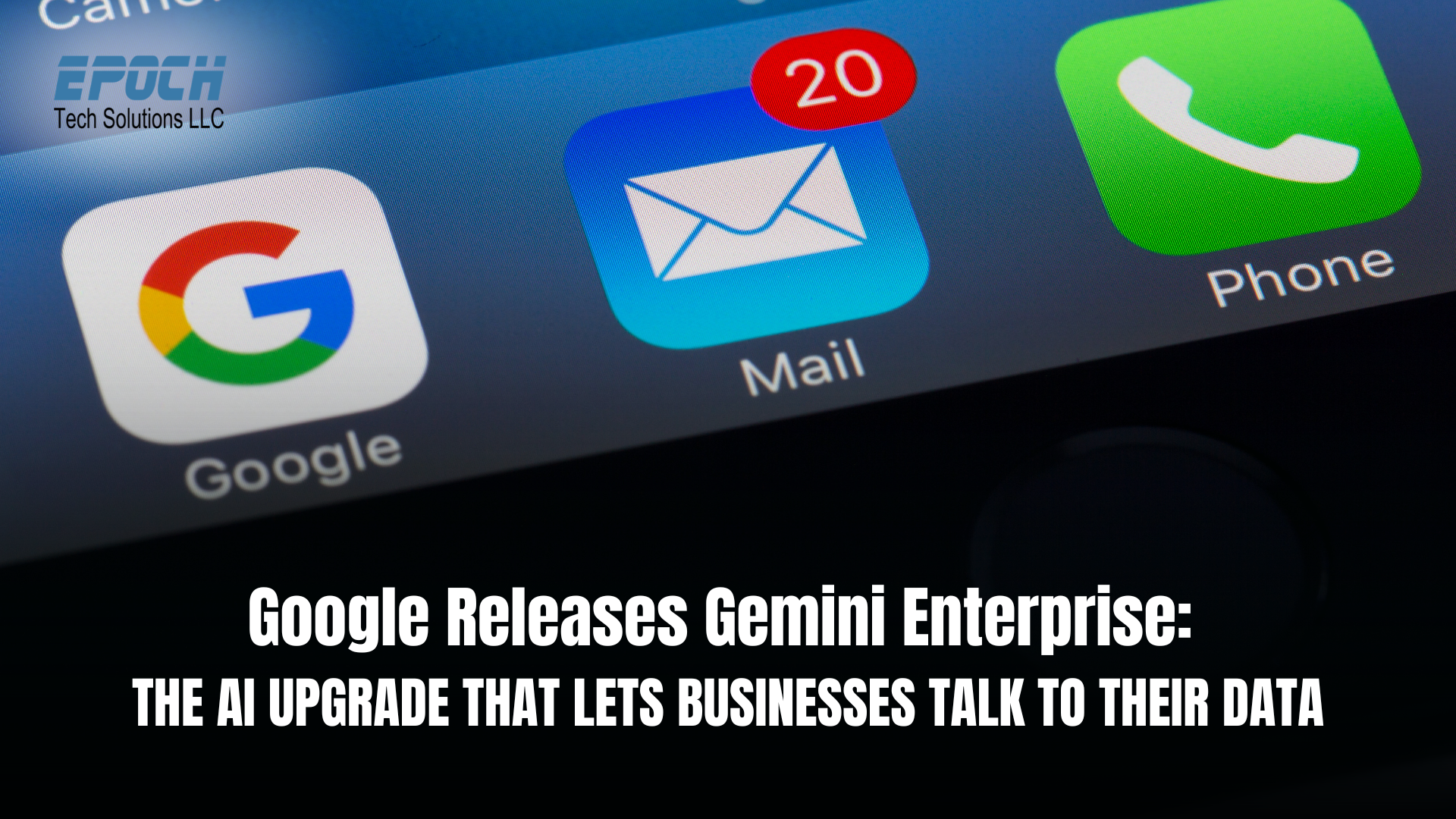
On October 9, Google officially rolled out Gemini Enterprise, a new AI platform built for business clients — not just for tech nerds. This isn’t another consumer chatbot. Instead, it’s a conversational layer on top of your company’s data, documents, and internal apps. Imagine asking, “How did last quarter’s sales compare to this quarter’s forecast?” and getting instant, meaningful insights — without hunting through spreadsheets and dashboards.
Google’s pitch: employees can chat with their company’s internal tools and files as easily as texting a friend. Gemini Enterprise comes with pre-built agents for tasks like deep research and data synthesis, and also supports custom AI agents that companies can tailor to their own workflows. Reuters To prove it’s serious, Google’s already signed on clients like Gap, Figma, and Klarna.
Gemini Enterprise builds on features already embedded in Google Workspace — think smarter search, agentic workflows, and seamless integration with Google’s AI models — but now it’s a unified, enterprise-grade offering.
Because Gemini Enterprise is newly launched, we don’t yet have long-term case studies. But already, Gap, Figma, and Klarna are using it. It’s likely they’ll deploy it for use cases like trend forecasting, operational analytics, or customer insights.
In parallel, Google has shown prototypes in its “Gemini at Work” initiative (in earlier versions of Gemini) where companies reportedly saved 105 minutes per user per week by automating repetitive tasks.
So while we wait for deep studies, early signs point to time-saving gains, better insights, and smoother workflows — if everything is set up right.
“An AI platform is only useful if it sits where people already work,” notes a cloud AI strategist. The advantage Google has is that many businesses already live in Workspace, so Gemini Enterprise is less of a disruption and more of an upgrade.
But another consultant adds a caution: “The promise is powerful — but success depends on governance, training, and balancing automation with human oversight.” In other words: agents don’t replace people — smart workflows do.
AI platforms like Gemini Enterprise often target large enterprises first. SMBs get excited — then hesitate when they see the costs, risks, or complexity. But there are ways small businesses can benefit and mitigate downsides.
In short: SMBs should treat Gemini Enterprise not as an all-or-nothing leap, but as a toolbox. Use what you need, protect what matters, and scale when proven.
Google’s Gemini Enterprise is a strategic play: bringing the magic of conversational AI into real business workflows. For large companies, it’s likely to become a productivity backbone. For SMBs, it’s an opportunity laced with caution. The real winners will be those who treat AI not as a silver bullet, but as a smart utility.
Want help evaluating Gemini or building AI agents that fit your business size and budget?
Contact Epoch Tech Solutions today for a free consultation